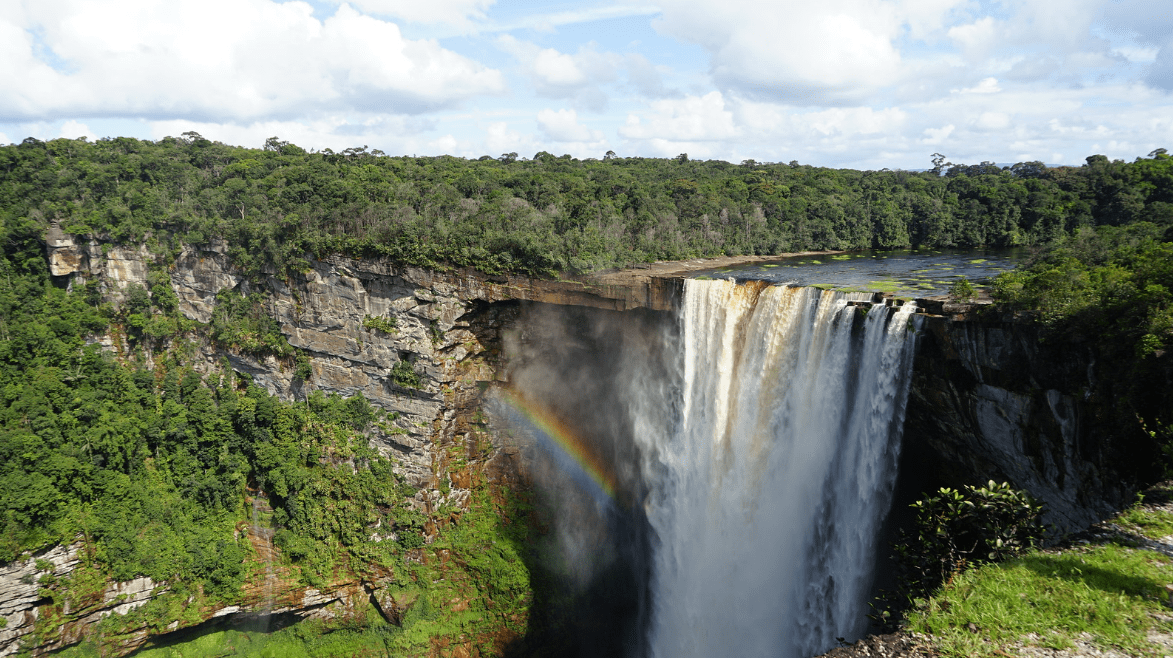Guyana’s President Dr. Irfaan Ali staunchly believes that if oil and gas is the bedrock of today’s global economy, then rich and diverse ecosystems ought to be its future.
Considering this view, the Head of State during a recent press conference underscored the need for countries to realize the potential of ecosystems to be significant revenue earners.
He was keen to note that Guyana has already been a leading example in that regard. The President reminded that Guyana was the first developing country to start the ball rolling with its Low Carbon Development Strategy (LCDS) in 2009.
Through this medium, he articulated that Guyana made a creative offer to the world on payments for forest cover maintained. And thus far, the country has raked in more than US$80 billion to date through a deal it inked with Norway to keep its forest intact.
Because of the work done over the past 12 years, the President highlighted that Guyana has maintained the second-highest percentage of forest cover on earth – with more than 99.5% of the forest remaining – an area almost the size of England and Scotland combined.
The country also boasts of having the lowest deforestation rates across the globe. The President also pointed to the Guiana Shield which Guyana shares with neighbours Suriname, Brazil, and French Guiana. Considered to be one of the most pristine rainforests in the world, the Guiana Shield stores about 18% of the world’s tropical forest carbon and 20% of the world’s freshwater.
And with Guyana alone storing about 19.5 billion tonnes of carbon in its rainforests, the Head of State pointed out that those ecosystem services have the potential to provide “enormous value to the global economy.” In fact, President Ali estimates that Guyana’s forests alone are set to provide global value from US$40 billion to US$54 billion annually. The Head of State in recent weeks has also reminded of his government’s intention to unlock the potential of these assets via various projects.
But while Guyana undoubtedly sees the value of its green assets, this vision is not shared by countries, the President said.
“Unlike oil and gas – the world does not yet recognize this value in monetary terms,” Ali lamented.
“This is the main reason that forests across the world are cleared for agriculture, mining, infrastructure, and other uses. In short, the world’s tropical forests are worth more dead than alive, and forest areas that are the size of Greece disappear every year, causing about 16% of global greenhouse gas emissions,” he continued.
The President stressed that the world continues to make “faltering progress” towards recognizing this value and creating alternative low carbon income streams for countries with those assets to protect them for the future.
He acknowledged that some progress has been made with REDD+ within the United Nations Framework Convention on Climate Change. But at the same time, he pointed out that when a comparison is made of the market for oil and gas with the market for ecosystem services; a stark difference can be seen in what the international financial system values.
Noting the foregoing, Mr. Ali underscored that “the situation needs to change over the next decade if the worst extremes of climate change are to be averted, and if the world’s forests and other ecosystems are to be maintained to regulate rainfall, prevent diseases and provide the basis for much of the world’s future medicines.”



